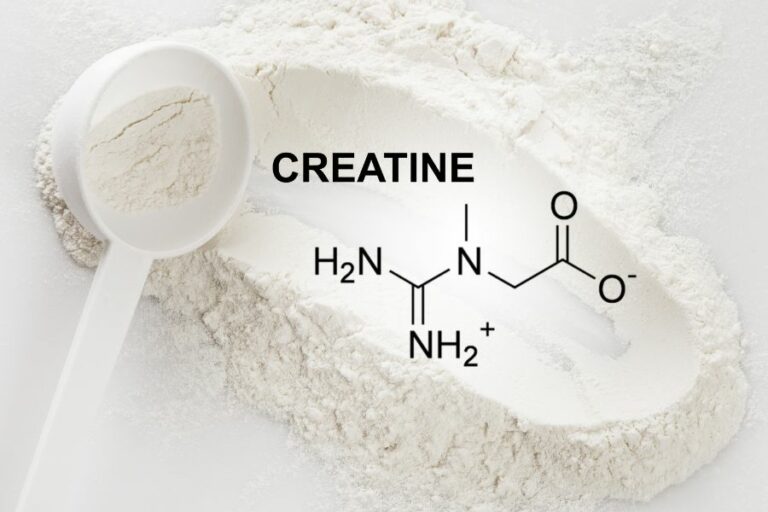Salt Per Day – How Much Salt Should You Consume?

Salt is an essential ingredient of day to day consumption. Its important to know the recommended intake of salt per day for optimum body functioning, and the dangers of excessive consumption.
As you know, the human body is dependent on different food nutrients. Some of these nutrients are extremely important in helping the body retain its internal balance and stay functional. An example is a sodium; one of the most essential elements for the proper day-to-day running of the body.
The most common chemical composition of salt is 40% sodium and 60% chloride. However, the research finds that low sodium salts such as potassium have been discovered to have an adverse effect on long-term health. As a result, the common salt is the more preferred choice for regular consumption.
Another study [1]Food and Drug Administration: Sodium in Your Diet by the Centers for Disease Control and Prevention (CDC)states that on an average nearly 40% of sodium intake of Americans come from foods like poultry, burgers, pastas, soups, savory snacks and more.
Generally, consuming salt assists the human body in optimizing muscle and nerve function. But, you may want to ask:
- How much salt per day is ideal for consumption?
- What is the relationship between salt and sodium?
- What is the recommended daily salt intake quantity?
Despite its obvious advantages, excessive consumption of salt per day has many unpleasant effects on the human body. Some of these unpleasant consequences might be long or short-term.
In this post, you will get to know why salt is essential to the body, the effects of consuming too much or too little salt, and what your average salt per day intake should be.
Let’s dive in!
Why is salt essential to the body?
As previously highlighted, salt intake can be vital and consequential to the body. However, this section focuses on the reasons it is essential to the body; some of which include:
1. Iodine deficiency prevention
One of the widely used sources of iodine is iodized salt. The thyroid hormone depends greatly on iodine since the body cannot naturally produce iodine.
The enlargement of the thyroid to keep up with the body’s demand for iodine occurs as a result of the absence of iodine. This eventually results in conditions such as hypothyroidism.
Taking an adequate quantity of salt per day can help prevent these unpleasant conditions. And at every stage of life, salt plays a significant role in the growth and development of the human body.
2. Cardiovascular health improvement
Dietary salt helps determine the body’s blood pressure, which directly affects the body’s cardiovascular health. This “health talk” part of the body is related to strokes and heart attacks.
With blood being the primary transporter of nutrients in the body, its flow rate must be maintained to live a healthy life. The pressure levels of its flow mustn’t be too high or unnecessarily low; hence, controlling the intensity of one’s salt per day intake is paramount. Doing this will help in boosting the blood volume in the arteries.
3. Management of diabetes
To live a healthy life, it is crucial to maintain proper insulin levels in the body. Diets with optimum salt content strengthen the body’s sensitivity towards insulin. On the other hand, meals with low levels of salt weaken the body’s sensitivity.
The absence of insulin leads to an inability to metabolize glucose, meaning the liver, muscles, and nervous system get poor energy levels. If this should persist, it could lead to Type 2 diabetes.
4. Prevention of hyponatremia
The shortage of sodium in the fluids surrounding cells results from a condition called hyponatremia. Hyponatremia can be caused by sweat, overhydration, diarrhea, and water intoxication.
Sodium must be present in an adequate amount as it helps in the smooth functioning of the nerves and the maintenance of healthy blood pressure. When the sodium blood level falls, the body triggers water as a substitute to fill up the space. A study [2]Centers for Disease Control and Prevention: What are normal blood pressure numbers? suggests that a normal blood pressure level is less than 120/80 mmHg.
This causes an imbalance in the body’s salt to water ratio, leading to a swelling in the cells due to excess water. Excluding the brain cells, this swelling doesn’t pose any significant threat. However, the confined spaces of the human skull mean there is little space for swelling, which leads to hyponatremia.
5. Dental hygiene maintenance
Medical practitioners like dentists use salt in the treatment of mouth-related infections. Infections such as trench mouth can lead to ulcers in the gums, which can be pretty painful.
However, using a combination of salt and water can alter the mouth’s pH level, killing off the bacteria. This helps to soothe the sore gums and to reduce swelling.
You can also use a quarter teaspoon of salt and baking soda in warm water to rinse the mouth. This helps whiten the teeth, clean plaque, and keep the gums healthy.
6. Treatment of cystic fibrosis
Cystic fibrosis results from a malformed protein that prohibits the normal flow of salt and water in the body. It results in the production of very sticky and salty sweat; meaning the body will lose more salt than it should.
Due to the low salt content in infant milk and breast milk, infants suffering from this condition need extra salt. Proper salt intake can help in the treatment of this condition.
Is salt healthy or unhealthy for you?
Without a doubt, salt is not only advisable for your consumption but also crucial to your overall health. However, it must be appropriately used because excessive use may result in unwanted and preventable diseases.
According to a survey, ninety percent of Americans consume more than recommended amount of salt/sodium. The graph [3]Statista: Salt consumption in the United States from 2011 to 2021 below gives an insight into the salt consumption trends in the US over the decade (2011-2021):

Another study [4]Harvard T.H. CHAN: Salt and Sodium has found that consumption of higher than recommended amounts of salt result in critical health conditions like cardiovascular disease, kidney disease, osteoporosis and many more.
The key is to balance your salt per day intake according to the growth stages of the human body. For instance, during the growth stages from infancy to adulthood, salt consumption may not be an issue, but as one grows older, reducing the quantity taken daily can be helpful.
Recommended daily salt intake
The general belief is that sodium essential to the body is sourced from salt, and the term iodized salt and sodium are often used interchangeably. However, we get more sodium into our system from other food items such as packaged and processed food.
According to a research [5]Centers for Disease Control and Prevention: Sodium, on average, America consumes up to 3400 mg of sodium daily, which is way above the recommended limit. Health authorities in different parts of the world recommend a daily sodium intake of 1500 – 2300 mg per day for adults. The preferred intake of salt per day can be likened to taking a teaspoon of salt daily.
Below is the table representing the recommended amount of salt based on age groups:
| Age Group | Recommended Salt Intake |
| 1 to 3 years | 1000 milligrams |
| 4 to 8 years | 1200 milligrams |
| 9 to 50 years | 1500 milligrams |
| 51 to 70 years | 1300 milligrams |
| Above 70 years | 1200 milligrams |
Consequences of eating too much salt
A little too much of anything isn’t advisable, and unregulated salt consumption is no different. Too much sodium intake can lead to adverse health conditions. Some of the health conditions are highlighted below:
1. Danger to heart health
The heart is one of the most vital organs in the body, and it deserves protection from all constraints that could reduce its efficiency. Too much sodium intake could be harmful to the heart; for instance, it could lead to high blood pressure, a global health concern.
An increase in the blood pressure affects different areas of the human body, such as the body’s immune systems, digestive systems, and hormonal balance. The renin-angiotensin system is vital to regulating this in the body, but excessive salt consumption weakens it.
2. Linked to gastric cancer
Amongst the many types of cancer, one of the most prevalent today is stomach cancer. Unfortunately, it also ranks as the fourth leading cause of death through cancer worldwide.
As a result, several researches are ongoing to identify new ways of treating this condition. Some studies have shown that high salt diets, including foods like pickled vegetables and salted meats, pose a higher threat of stomach cancer.
3. Feeling bloated
Another side effect of having too much salt in your system is bloating. You feel bloated when there’s a certain tightness in your stomach, and it feels swollen. This is a short-term effect of the excess water taken to attain a balance in your body system.
Tips for managing your daily sodium intake
The importance of tracking your body’s sodium level and keeping it at an optimum level has already been established. So how can this be achieved? Let’s see a few tips to help you stay in charge to maintain a satisfactory sodium level:
- Reading food labels
Typically, when hungry, all you can think of is opening a food can and devouring its contents. Well, you may want to slow your roll. For your health, you will need to keep tabs on your amount of consumption of salt per day, in fact, you need to get familiar with food labels.
Packaged and processed food always come with labels at the back. You should see a table showing what was used to produce what you are about to eat. If sodium is one of the constituents, you will find mention of the exact quantity of sodium present in your food item.
- Drinking water
The body naturally develops a mechanism to help combat the presence of excess sodium in the body system; This is why whenever there is a high level of sodium in the bloodstream, you start to feel thirsty.
This temporarily helps to deal with the chemical imbalance. Speaking in general terms, water is always good for the body, and staying hydrated will do you a wealth of good.
- Changing your diet and choosing fresh food
To get the best results, you may want to consider a total revamp of your diet and eating habits. For example, you can switch to taking more fresh foods than the packaged ones, which are pretty high in sodium. This will also help in controlling your blood pressure symptoms and promote a healthy lifestyle.
Conclusion
Like many other essential nutrients, salt is vital to the overall health of every individual. However, great caution must be taken when including it in your daily diet, and it mustn’t be consumed excessively.
References
| ↑1 | Food and Drug Administration: Sodium in Your Diet |
|---|---|
| ↑2 | Centers for Disease Control and Prevention: What are normal blood pressure numbers? |
| ↑3 | Statista: Salt consumption in the United States from 2011 to 2021 |
| ↑4 | Harvard T.H. CHAN: Salt and Sodium |
| ↑5 | Centers for Disease Control and Prevention: Sodium |







